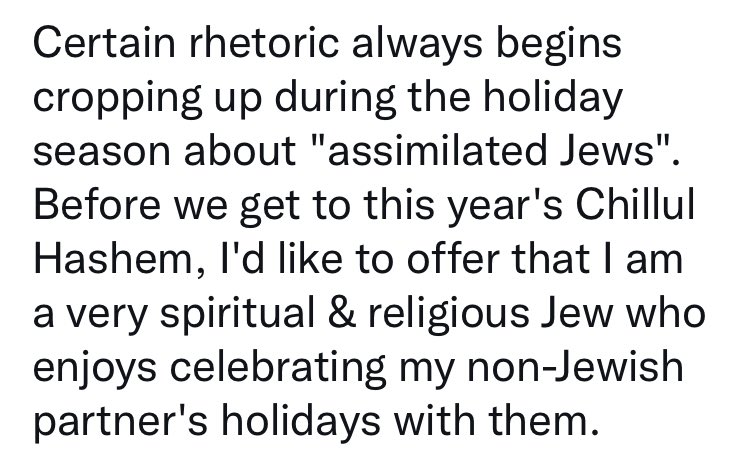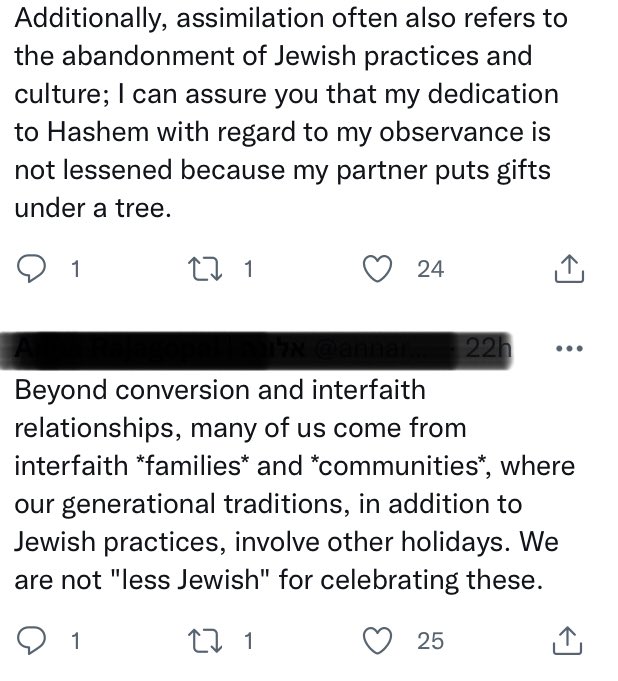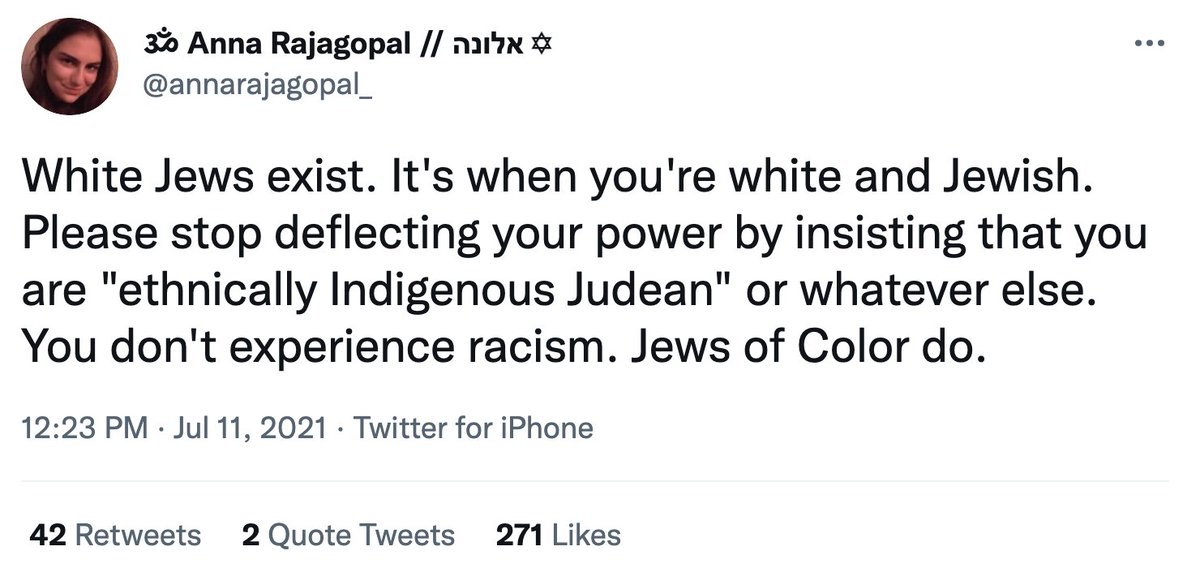
If someone said
“The fact that I eat meat doesn’t invalidate my veganism”, you’d laugh
“The fact I’m eating doesn’t invalidate my fasting”, you’d roll your eyes
“The fact I’m married doesn’t invalidate my celibacy”, you’d groan
A thread about Hanukkah & intellectual honesty
“The fact that I eat meat doesn’t invalidate my veganism”, you’d laugh
“The fact I’m eating doesn’t invalidate my fasting”, you’d roll your eyes
“The fact I’m married doesn’t invalidate my celibacy”, you’d groan
A thread about Hanukkah & intellectual honesty
The Jewish people is named Israel. One of the reasons why, our Sages say, is that Jews are meant to be Yashar E-l, straight with G-d.
To be intellectually honest is one of the most important virtues in all of Judaism. That’s why it’s important to make a simple the distinction:
To be intellectually honest is one of the most important virtues in all of Judaism. That’s why it’s important to make a simple the distinction:
Your innate Jewishness cannot be affected by what you do. A Jew is a Jew is a Jew. Even if ch”vs a Jew is eating a cheeseburger with bacon on Yom Kippur while sitting in a church, he is still Jewish (even if Halacha dictates we treat him differently as a result)
However:
However:
An action done by a Jew, is not Jewish by virtue of the person who does it, and there is no two Judaism.
No, you cannot worship idols and claim this is Judaism, even if you are still a Jew.
No, you cannot participate in other religious celebrations and claim this is Judaism.
No, you cannot worship idols and claim this is Judaism, even if you are still a Jew.
No, you cannot participate in other religious celebrations and claim this is Judaism.

As Jews we are lenient and adopted a live and let live attitude.
Do not fool yourself however, thinking that eating a cheeseburger while sitting in church is holy because you *feel* that it is. This is not what Judaism is, anymore than Hanukkah is “Jewish Xmas”
Do not fool yourself however, thinking that eating a cheeseburger while sitting in church is holy because you *feel* that it is. This is not what Judaism is, anymore than Hanukkah is “Jewish Xmas”

Your neshama is holy, it is pure, & there is no act that can ever affect its point of connection with Hashem.
However, be worthy of the name Israel and, when you behave in a way that goes contrary to Torah, don’t fool yourself in calling forbidden permitted & permitted forbidden
However, be worthy of the name Israel and, when you behave in a way that goes contrary to Torah, don’t fool yourself in calling forbidden permitted & permitted forbidden
It’s ok to have a weakness, it’s ok to say it’s not for me, it’s ok to say “I’m not able to” but it’s never ok to call white black or black white simply because you are indulging & unwilling to admit it. You are only fooling yourself, and deep down you know it as well.
Be Israel
Be Israel
• • •
Missing some Tweet in this thread? You can try to
force a refresh









